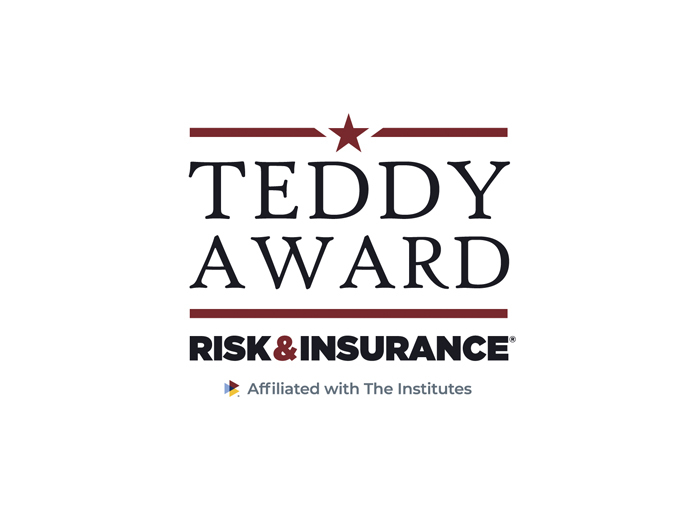WC Breakout Sessions Include Program Management Track
The 23rd annual National Workers’ Compensation and Disability Conference® & Expo takes place Nov. 19-21 at the Mandalay Bay Resort and Casino in Las Vegas. The conference is produced by LRP Publications, the publisher of Risk & Insurance®.
New to the National Workers’ Compensation and Disability Conference® this year is a track that focuses on logistical operational pieces of a company’s workers’ comp and disability programs. The breakout sessions include:
Workers’ Comp Insurance Exposed: Views From the Industry’s Leading Carriers
Speakers:
- Chris Irving, regional vice president, national accounts, The Travelers Cos. Inc.
- Russell Johnston, casualty president for the Americas region, American International Group Inc.; member, NCCI board of directors.
- Debbie Michel, executive vice president of commercial markets, Liberty Mutual Insurance; president, Helmsman Management Services LLC.
Moderator:
-
- Eric Silverstein, senior vice president and risk management leader, Lockton Companies.
What’s shaping the insurance claims and underwriting landscape these days? What lies ahead that could influence workers’ comp? The leaders of the nation’s largest workers’ comp carriers will attempt to answer these questions as they provide their thoughts on the latest workers’ comp cost drivers and key elements affecting the industry. The panelists will evaluate the claims and economic forces that are impacting insurance underwriting.
Risk Financing: Selecting the Best Option for Your Company
Speaker:
- Mark Walls, senior vice president, workers’ compensation market research leader, Marsh USA Inc., and the founder/manager of the Work Comp Analysis group on LinkedIn.
Risk managers face a variety of risk financing options for their workers’ comp programs. First dollar coverage, deductibles, self-insurance, or a blend of these insurance structures are some examples. Walls will explain the significant differences between available insurance arrangements and look at some of the key considerations when planning an employer’s optimal risk financing strategies. Collateral considerations, claims administration, state assessments, taxes, guarantee funds, insurance purchasing conditions, and regulatory compliance are factors that will be discussed. He will also discuss the short- and long-term impacts of the different financial options.
Apply Post-Loss Claims Data to Structure Your Pre-Loss Safety Culture Program
Speaker:
- Patricia Hostine, global manager, workers’ compensation, Cooper Standard Automotive.
Workers’ comp insurance premiums can increase if practitioners fail to address safety. Hostine has taken steps to make Cooper Standard Automotive’s risks more attractive to underwriters through safety interaction and loss reduction practices. Among these measures are analyzing post-loss information to prevent future accidents and improving return-to-work outcomes by restructuring the language used to communicate the workers’ comp process to injured workers. Hostine will provide details on her company’s actions and show how other employers might employ similar methods. She also will examine looping back claims data to shape pre-loss safety practices and prevent accident recurrence, and identify how worker communications impact losses.
Private Equity’s Major Deals and Their Impact on Workers’ Compensation
Panelists:
- Camilo E. Horvilleur, principal, H.I.G. Capital LLC.
- Jeffrey S. McKibben, managing principal, Odyssey Investment Partners.
- P. Hunter Philbrick, managing director, Hellman & Friedman.
Moderator:
- Joseph Paduda, principal, Health Strategy Associates LLC, and author of the ManagedCareMatters blog.
In recent years, private equity firms have purchased many major workers’ comp service providers with more deals expected. Under the facilitation of industry veteran Joseph Paduda, senior executives from some of the equity firms involved in significant workers’ comp deals discuss what this trend means for claims payers and purchased companies. They will discuss what investors look for when considering a transaction, how private equity investment changes the workers’ comp landscape, and whether day-to-day activities change for an acquired company.
Holding Your Insurer/TPA Accountable With Customer Service Instructions.
Speakers:
-
- Darin Hampton, workers’ compensation regional coordinator, International Paper.
- Jodie L. Massingill, senior manager, casualty claims, Sysco Corp.
Employers seeking the best possible service and support from their vendor partners are the focus of this session. The speakers, both senior-level claims managers with more than 55 years of combined claims and risk management experience, will discuss their strategies for successfully overseeing TPAs and insurer services. Additionally, they will share their practices for keeping adjusters, nurse case managers, outcomes-based doctor networks, attorneys, and other service providers engaged and accountable for high-quality service. Finally, the speakers will provide details on how to design practices to build an effective claims management program, formulate contracts that hold service providers accountable, and evaluate and measure program cost metrics.
Behavior-Based Safety Program: How You Can Prevent Injuries and Improve Product Quality.
Speaker:
- Julia Sfurm, corporate senior risk operations manager, Elkay Manufacturing Co.
A company’s output won’t matter if employees aren’t safe and the product isn’t high quality. Therefore, it is important for employers to understand how to produce a safety-rich culture. Sfurm will discuss the basics of behavior-based safety programs such as applying behavioral psychology and developing action plans that reduce the risk of injury. She will offer details on how BBS can increase the learning opportunities and loss prevention knowledge of all employees, regardless of their positions while spreading a drive for high-quality production throughout the organization. Sfurm will go through some of the challenges of BBS, offer tips to determine whether employees and management are ready for such a program, and provide strategies to get a BBS program started.
Click here for more information.










